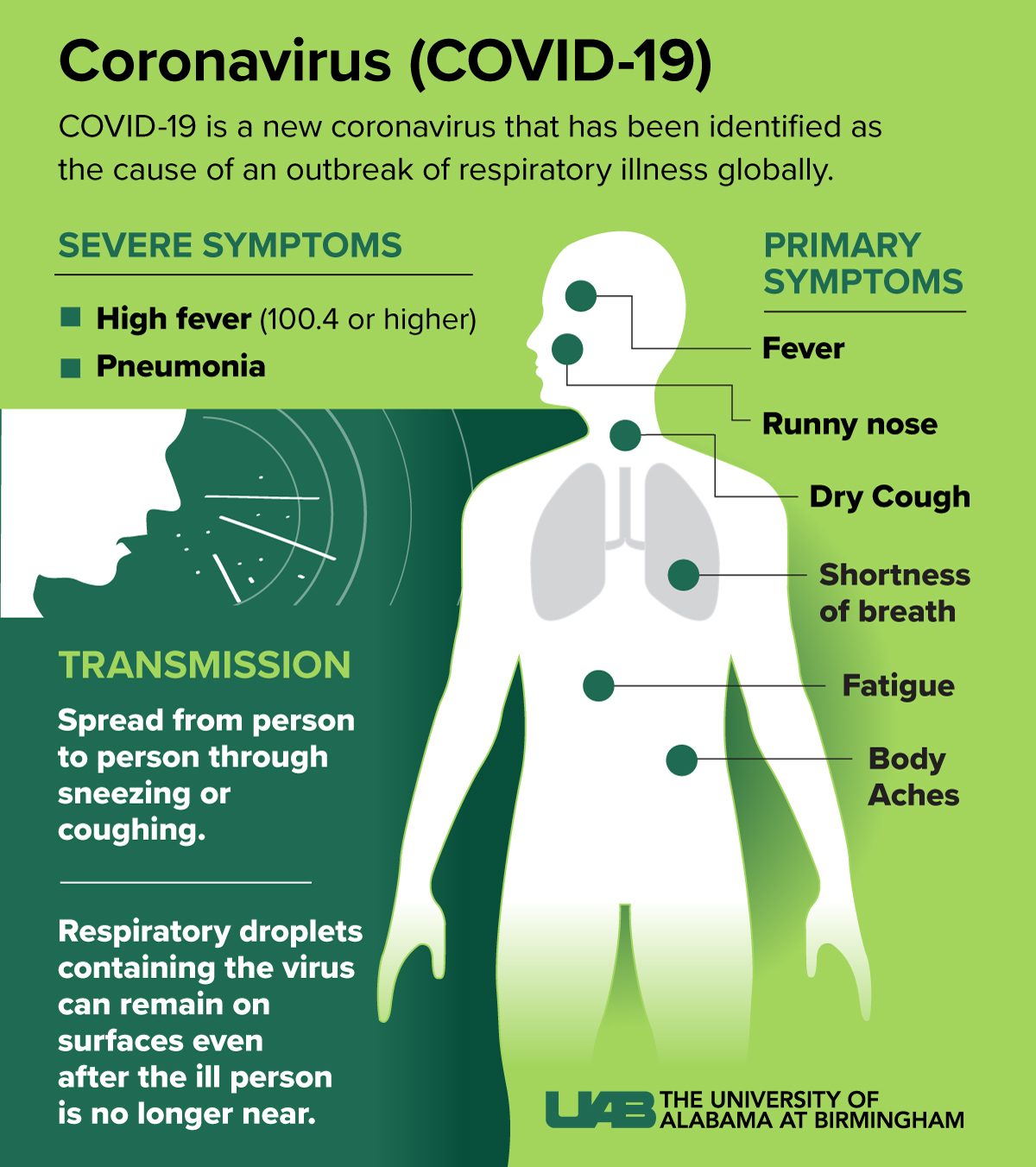The world around us has become sad and depressing due to the outbreak of coronavirus. The outbreak, which began last December in Wuhan, China, has now spread to almost all countries across the globe. The hardest-hit countries outside China are South Korea, Italy, and Iran. However, the number of COVID-19 cases is rising rapidly in other nations too. Currently, there is no vaccine for it, and it is highly unlikely that there will be one available for mass distribution in the immediate future. The only way to protect one’s self from this virus is to take steps to reduce the chances of contracting the illness in the first place. Washing hands with soap, avoiding social contact, and using protective equipment can help control the potential spread of the virus. To effectively combat the threat posed by this virus, it is very important to know all that is there to be known about the virus. The authentic knowledge of do’s and don’ts is by far the easiest way to help keep you and your loved ones safe. Below, we are answering the 12 most commonly asked questions about coronavirus that can help save yourself more effectively.
What exactly is COVID-19?
World Health Organization (WHO) named this new disease “Coronavirus Disease 2019” or COVID-19. Coronavirus is a strain of viruses that can cause illness in humans and animals.
Where did it come from?
COVID-19 was first identified in Wuhan, Hubei Province, China. Early theories indicated that the virus could have originated from snakes or bats. However, it was quickly refuted. Researchers discovered genetic similarities of COVID-19 with other diseases. Some of its genes indicate links to the previous SARS virus as well as coronavirus that infect bats and the scaly, ant-eating pangolin. No conclusive evidence can be found to show exactly from which specie this virus originated.
What are the symptoms?
Based on the available information and research, the initial symptoms of the virus include fever, cough, body aches, nasal congestion, tiredness, and shortness of breath. Few people may also develop diarrhea or nausea. Some people may get infected but don’t develop any symptoms and don’t feel unwell. They are called “asymptomatic.” According to the World Health Organization, around 1 out of every 6 people who get COVID-19 becomes seriously ill and develops difficulty breathing. As the illness intensifies, breathing difficulties and symptoms akin to pneumonia develop. In more severe cases, the infection causes severe acute respiratory syndrome and kidney failure. 
How long does it take for the symptoms to appear?
Symptoms of COVID-19 may appear in as few as two days or as long as 14 days after the exposure to the virus. It is also possible for someone to be the carrier of the virus without exhibiting the symptoms.
How does it spread?
COVID-19 primarily spreads through respiratory droplets when an infected person coughs or sneezes. It implies that to be infected, you must be within six feet of someone who has already contracted the virus. You may also get sick by touching a surface that has the virus on it and then touching your mouth, nose, or possibly eyes. Not only this, but it is also possible for you to catch the virus if you breathe in droplets exhaled through cough by a person with COVID-19.
How long can the virus survive on surfaces?
This is a disputed claim. Various researches point towards different time duration of the virus’s stay on a surface. However, one thing is certain that the virus can stay on non-living things for some time. It can also remain in the air for up to 3 hours. How long it would stay on a surface depends upon the surface it lands on. For instance, up to 4 hours on copper, up to 24 hours on cardboard, and up to 72 hours on plastic and stainless steel. The good news is that COVID-19 can be effectively wiped away by household disinfectants.
Who is most at risk?
About 80% of people recover from the disease without needing special treatment. However, it can be severe or even fatal. The elderly (above the age of 60) and those with pre-existing medical conditions are more vulnerable. People with asthma, diabetes, heart disease, kidney disease, or cancer are more susceptible to catching the virus.
Do normal antibiotics work against this virus?
No. It cannot be treated by the antibiotics that you might use normally. Antibiotics treat bacterial infections, and this is a virus. No medication should be taken to fight the virus without a prescription by a doctor or health officer.
How can patients be treated?
Currently, there is no FDA approved medication for the virus. Infected people are treated for the symptoms. Typically, they require rest, plenty of fluids, and medicine to control the flu-like symptoms.
How can I best protect myself?
Prevention is the best cure. So, implement best hygiene practices such as:
- You must wash your hands frequently with soap and warm water for at least 20 seconds. Hand sanitizers with at least 60% alcohol are also suitable to clean your hands.
- Avoid touching your face, especially the nose, mouth, and eyes.
- Don’t share towels, pillows, utensils, etc.
- Clean and disinfect common surfaces such as countertops, handles, phones, doorknobs, bathroom fixtures, toilets, etc.
- Avoid close contact with people
- It’s time for social isolation. Even if you aren’t sick, staying home can prevent you from interacting with someone who could be a potential carrier.
- Cover your nose and mouth, especially while coughing or sneezing with a tissue (which you should discard immediately and disinfect your hands).
When should I go to a doctor?
Unfortunately, spring is upon us. Given the rise of flu and allergy symptoms, it’s natural to mistake the common flu as COVID-19 symptoms. Certain factors distinguish the symptoms of COVID-19. If you have been in contact with a confirmed COVID-19 patient or have traveled recently to a place that had an outbreak, and you suspect that you may be infected, take precautionary measures. Separate yourself from other people, use a separate bathroom, and limit contact with pets if possible. Avoid public transportation. Stay in touch with your doctor or your trusted medical center for advice. If, however, you develop any of the following, seek medical attention immediately:
- Difficulty breathing or shortness of breath
- Persistent pain or pressure in the chest
- Confusion or inability to arouse
- Bluish lips or face
How are countries responding to the outbreak on a higher level?
As the coronavirus continues to spread, many countries are finding it hard to fight against it. The governments have ramped up measures to block the spread of the virus. Precautionary measures including shutting down schools, places of worship, and all places of public gatherings, such as malls, movie theaters, restaurants, etc. have been enforced. In the hardest-hit countries, the entire cities have been locked down. Strict screenings procedures are being conducted at airports and borders. Most countries have also shut down their borders banned the incoming flights to their country.
Final thoughts
In all cases, you need to follow the safety measure set by your government and local health department. This novel coronavirus knows no borders. Unfortunately, this outbreak is now more than a public health concern. It is bringing economies, small and large, to a standstill. The repercussions of COVID-19 will be felt far and wide in months to come.









